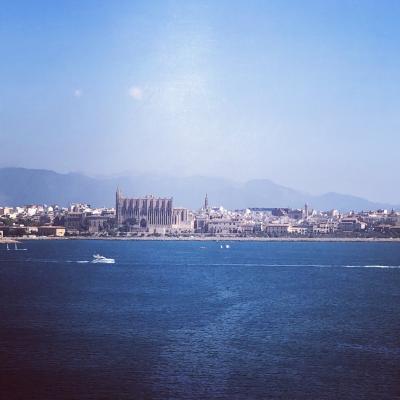In what ways did the Mediterranean climate affect the daily routines and responsibilities of watchmen in Mallorca?
Similar Topics
mediterranean climate mallorca
watchmen daily routines
summer heat challenges
wildfire prevention mallorca
winter patrolling tasks
watchtower maintenance
surveillance conditions
community coordination
The Mediterranean climate of Mallorca, characterized by its hot, dry summers and mild, wet winters, played a significant role in shaping the daily routines and responsibilities of watchmen stationed across the island. During the long summer months, watchmen had to contend with high temperatures and intense sun, which often made daytime vigilance physically demanding. To adapt, many watchmen would rise at dawn to begin their patrols and watch duties early in the cooler morning hours, carefully balancing the need for alertness with the harsh elements. The dry summer air also meant that fires were a constant threat, so watchmen remained particularly attentive to any signs of smoke or flame, ready to raise alarms quickly to prevent devastating wildfires.
In contrast, the milder winter climate allowed for more extended hours of patrolling, as temperatures remained comfortable for longer periods throughout the day and night. However, the seasonal rains sometimes made the terrain slippery and increased the risk of erosion or structural damage to watchtowers, requiring watchmen to take on additional maintenance tasks to ensure their posts remained secure and accessible. Visibility also fluctuated with winter weather conditions, occasionally limiting the range of their surveillance activities and requiring watchmen to be especially vigilant in monitoring both the sea and land approaches for any potential threats such as invading ships or smuggling activity.
The Mediterranean climate’s consistent patterns influenced not only the physical demands on watchmen but also their social rhythms and interaction with local communities. During the dry season, watchmen often coordinated with farmers and villagers, who relied on timely warnings about fires or pirate raids to protect their livelihoods. Night shifts were also common, particularly in summer when longer daylight hours gave way to starlit skies, necessitating the use of lanterns or bonfires atop towers to signal and communicate. Overall, the climate fostered a careful, adaptive approach to watch duties, blending vigilance with resilience to ensure continuous protection of Mallorca’s coastlines and countryside throughout the year.
In contrast, the milder winter climate allowed for more extended hours of patrolling, as temperatures remained comfortable for longer periods throughout the day and night. However, the seasonal rains sometimes made the terrain slippery and increased the risk of erosion or structural damage to watchtowers, requiring watchmen to take on additional maintenance tasks to ensure their posts remained secure and accessible. Visibility also fluctuated with winter weather conditions, occasionally limiting the range of their surveillance activities and requiring watchmen to be especially vigilant in monitoring both the sea and land approaches for any potential threats such as invading ships or smuggling activity.
The Mediterranean climate’s consistent patterns influenced not only the physical demands on watchmen but also their social rhythms and interaction with local communities. During the dry season, watchmen often coordinated with farmers and villagers, who relied on timely warnings about fires or pirate raids to protect their livelihoods. Night shifts were also common, particularly in summer when longer daylight hours gave way to starlit skies, necessitating the use of lanterns or bonfires atop towers to signal and communicate. Overall, the climate fostered a careful, adaptive approach to watch duties, blending vigilance with resilience to ensure continuous protection of Mallorca’s coastlines and countryside throughout the year.
🧩 Related Questions
Related Question
How do night-active birds in Mallorca adapt to the island’s climate and environment?
Related Question
Why is solitude in Mallorca's remote areas essential for those pursuing a hermitic existence?
Related Question
How do traditional farming methods in Mallorca support the growth of almond trees and local wildlife?
